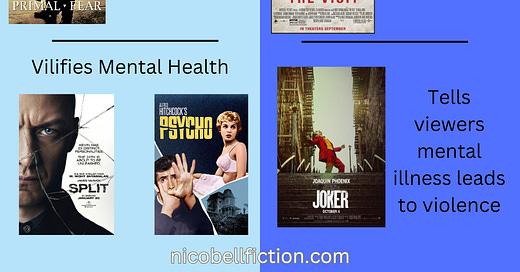As we start to whine down from Mental Health Awareness Month, let’s do one final discussion about representation in horror.
There’s plenty of debate about which horror films nail the positive representation of mental health within their characters and those that don’t. For example, I love Fight Club, and while I think it does a good job of mental health representation, plenty of individuals disagree, and that’s perfectly okay. The important aspect of watching these types of films is the ability to have critical discussions and recognize why they may not work. If we keep an open mind about the criticism, I believe we can still love these movies.
With all of that said, these are some movies that have problematic and valid concerns:
We’ll start with the classic, Psycho. Certainly, this film has made it’s mark on cinematic history, but Norman also propagates the stereotype that dissociate identity disorder (DID) leads to violence. Already, individuals with DID suffer from plenty of misconceptions, so films hyper fixated on the darkness aspect of the condition lead the general public to fear those with DID.
Speaking of propagating violence, Split is extremely controversial in their representation and with good cause. It takes the Psycho narrative to a completely different level while mixing a superhuman strength aspect within the protagonist. Again, the narrative plants the seed of fear within the general public, an already problematic stereotype individuals with DID face.
Primal Fear has not aged well. Really, it should have received a lot more criticism when first released. Edward Norton plays a character who seemingly has DID and because of this he is found not guilty of a violent crime.





